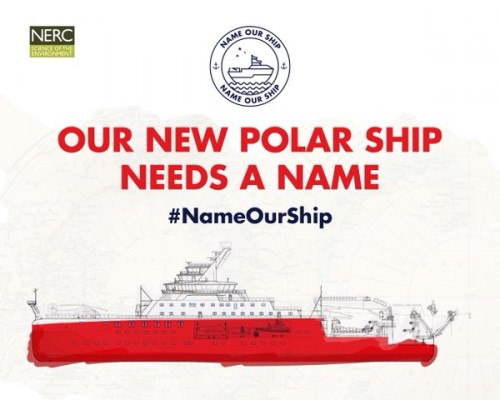 Some may label this moment a crisis of democracy, a moment in which the voice of The People lay inert; a moment in which the promise of citizen driven governance, shining so brightly in the glow of digitally connected screens, reveals itself as a farce.
Some may label this moment a crisis of democracy, a moment in which the voice of The People lay inert; a moment in which the promise of citizen driven governance, shining so brightly in the glow of digitally connected screens, reveals itself as a farce.
I am talking, of course, about Sir David Attenborough, or more to the point, I am talking about the $300 million British research vessel not called Boaty McBoatface.
The British National Environmental Research Council invited citizens to select the name for their new polar research vessel. It was an opportunity to bring science to the public and involve the public in scientific discovery. Anyone was allowed to submit a name, and everyone voted on their favorites. The name with the most votes was to moniker the craft. Radio personality James Hand proposed the name Boaty McBoatface. Hand’s suggestion was well received, and the citizenry irrefutably selected Boaty for the vessel’s name. Case closed, right? No, the vessel’s name is David… which sound nothing like Boaty and includes zero McFaces.
Although many citizens are upset about the way government heads renegotiated the terms of agreement (see: Petition for Sir David Attenborough to change his name to Boaty McBoatface), the outcome is quite in line with what we might expect. The events surrounding the Research Council’s boat-naming poll is a microcosm for how the internet interplays with citizen publics. It is an example of the rule, not an exception.
Here’s the thing about democracy in practice—citizen voices get a platform, but always within limits. Citizen voices matter, but in a relegated way. Citizen voices push and shape, but do not precisely sculpt (see: a continued absence of real campaign finance reform). While web technologies have the capacity to include more voices in the democratic process, internet-enabled democratization is especially vulnerable to bureaucratic coups. This is because citizens don’t have voice on the internet, they are given voice, and those who give voice can, ultimately, do with that voice what they will. (See: Facebook still has no Dislike button)
Common wisdom advises those who govern to include their subjects in decision making processes. People are more invested when they have a say. This is the logic behind teachers who let students help design homework assignments, parents who ask children what they wish to eat for dinner, and bosses who query employees about ways to improve efficiency. It is in this vein that the National Environmental Research Council invited the public to select a new name for their advanced research vessel.
Internet technologies grant expansive access to large groups of people, giving rise to the now common practice of crowdsourcing—or distributing some task among massive digitally connected networks. In the case of Sir David Attenborough, the job of naming a newly acquired ship was distributed among the British citizenry. This feels very democratic. That’s the point. But in the end, power rarely dethrones itself.
The People selected Boaty McBoatface for the vessel’s name by a margin of over 100,000 votes. But U.K. Science Minister Jo Johnson vetoed the decision, opting instead for something more “suitable.” Instead of Boaty McBoatface, Johnson named the ship Sir David Attenborough, the second place name (with 11,000 votes) and the name of a famous British naturalist.
Essentially, the Environmental Research Council was willing to let citizens participate, as long as those citizens did so in a way that was agreeable with the Research Council’s ideals. It was a democratic gesture, rather than a true effort in democratization.
But then again, Sir David Attenborough was the citizens’ second choice, and, it turns out, a yellow submarine attached to the ship will be named Boaty McBoatface. So The People were heard…kind of.
And that is democracy on the internet. It is a democracy where The People are heard…kind of. The ability for citizens to express themselves by no means upends structures of power, but it does irritate those who hold power. Invited or not, collective voices rise in volume. Even if they are rejected, they cannot be entirely ignored. Those in power—i.e., those who have the resources to make and enact consequential decisions—have to operate in an environment with permeable boundaries. They are not, and cannot be in an age of digital social technologies, insulated from those over whom they govern.
So Boaty lives, just not in the prominent place the citizenry designated. The internet cannot help but democratize, but in turn, power cannot help but dominate. In this way, Facebookers can’t Dislike and public funding is not compulsory for political candidates, but Facebookers can “React,” and two U.S. presidential contenders maintain campaign finance as central to their platforms.
Jenny Davis is on Twitter @Jenny_L_Davis

Comments 1
Britney Gil — May 10, 2016
Great connection between Facebook "reactions" and Boaty McSubmarineface. The uses of the internet by those in power to "gesture to" rather than engage in democratic decision making will, I think, become increasingly important as a means of soothing public discontent.